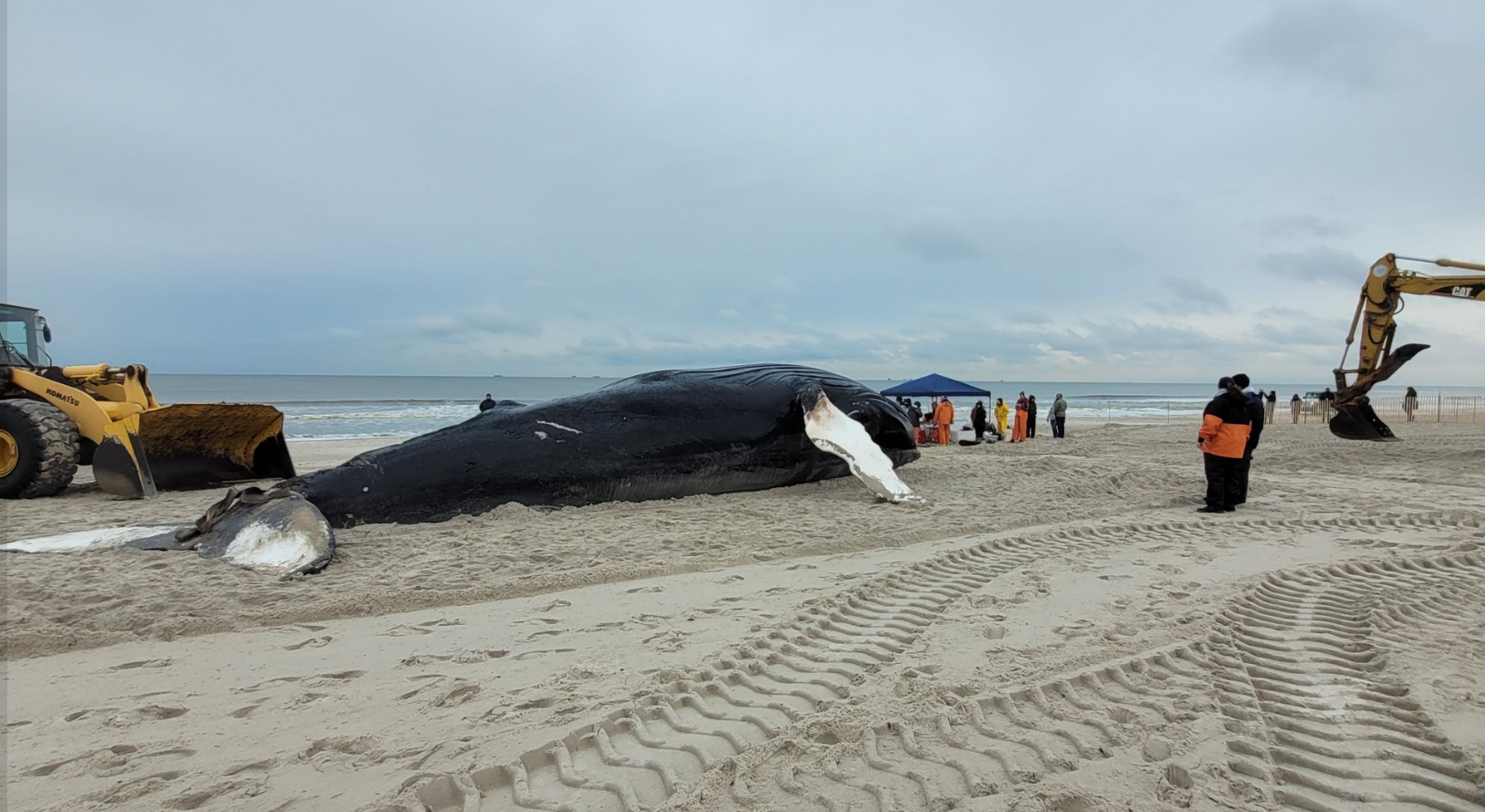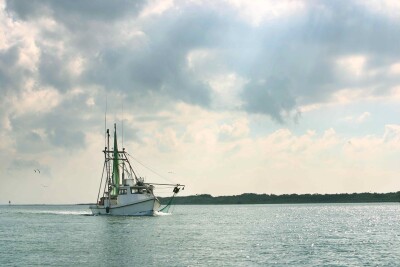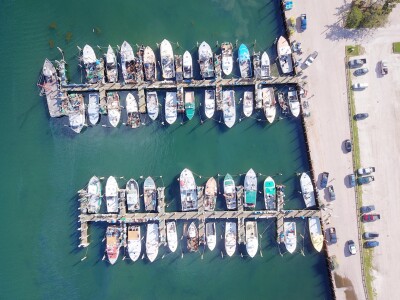Mayors from a dozen New Jersey beach communities and Rep. Chris Smith, R-N.J. sent joint letters to the federal departments of Interior and Commerce this week, urging a moratorium on survey and construction activity for New York Bight offshore wind projects after a two-month spate of whale strandings in the region.
“Over the course of the past several months, there have been repeated instances of dead whales washing up on New Jersey’s shoreline, and the proximity of nearby offshore wind development has raised concerns that ongoing activity on these projects may be contributing to whale fatalities,” Smith said in Jan. 30 letters to Commerce Secretary Gina Raimondo and Interior Secretary Deb Haaland.
The New Jersey-based environmental group Clean Ocean Action, beach community groups and commercial fishermen critical of offshore wind projects in early January called for the moratorium after dead humpback whales stranded at Atlantic City and nearby Brigantine, N.J.
Last weekend another humpback washed ashore at Lido Beach on Long Island, N.Y., raising the recent count to eight animals. Following a necropsy on the beach, federal officials said Wednesday the animal was likely struck by a vessel.
“The New Jersey mayors, local environmental leaders, and members of the fishing community all share a deep concern that four major offshore wind projects have been approved concurrently within the span of two years,” Smith wrote in the letters. “That these projects are being built at such a large scale and in such a short amount of time casts doubt over whether there was sufficient time to properly evaluate these projects’ impact on marine ecosystems, fisheries, shipping channels, tourism, and other important factors that may be affected.”
Smith’s congressional district includes Manasquan Inlet, home port to commercial fishermen who say their livelihoods are deeply threatened by turbine arrays planned for off New Jersey and New York. Similar alarms have been raised in the mayors’ beachside resort communities over worries about potential tourism and environmental impact from wind power development.
“I share their concerns regarding the several offshore wind projects under development off the coast of New Jersey, and their requisite impact on recent whale deaths, as well as the potential impacts on the broader environment and the fishing industry,” Smith wrote.
Officials with the National Oceanic and Atmospheric Administration and Bureau of Ocean Energy Management say there is no evidence that sound generated in high-resolution geophysical surveys of turbine sites and cable sites harms marine mammals. NOAA has been tracking an “unusual mortality event” among Atlantic humpback whales since January 2016.
Nevertheless wind critics insist that NOAA and BOEM offer more proof, and Smith echoed their demand: “the lack of conclusive evidence disproving the link between offshore wind development and whale deaths is sufficient enough to require a pause until assurances can be made to the public that the environmental and maritime safety of these projects has been properly reviewed.”
The dead whale at Lido Beach was the subject of a necropsy Jan. 31 by the Atlantic Marine Conservation Group, a marine mammal stranding response organization, working with partners including NOAA Fisheries, the New York State Department of Environmental Conservation, Town of Hempstead, Mystic Aquarium Animal Rescue Program, Wildlife Conservation Society, Center for Coastal Studies, Cornell University, and the Marine Mammal Stranding Center.
On Wednesday NOAA officials said the whale appeared to have been struck by a vessel – as was seen in the Brigantine incident and one of the Atlantic City whales. In a statement AMSEAS noted the necropsy involved extensive tissue sampling for laboratory tests.
“The necropsy is conducted with an open mind, and collects samples to be able to rule in and rule out potential causes of death including disease, toxins, emaciation, and human causes such as vessel strike and entanglement,” according to AMSEAS. “Samples will be sent to a lab to process, and the results may take several weeks or longer.
“There has been a lot of speculation about whether these whale deaths are linked to wind energy development, but at this point, we have no evidence that would attribute any whale mortalities to offshore wind activities, such as sonar or seismic work. We will continue to gather data and go where the science leads us.”







